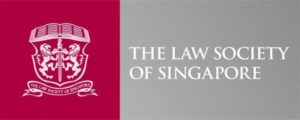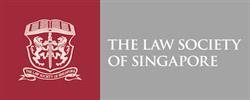Understanding the Vulnerable Adults Act
The information in the Legal Fact Check Service is provided as a public service by the Law Society of Singapore. The information presented on this site is strictly for information. It is not legal advice and should not be treated as an alternative to seeking legal advice from your lawyer. The information provided in the Legal Fact Check Service is not a definitive analysis of the subject and professional legal advice should always be taken before any course of action is pursued.
Whilst the information presented is considered to be correct at the date of publication, changes in circumstances after the date of publication may impact on the accuracy of the information. The Law Society of Singapore reserves the right to amend any content at any time, at its sole discretion, without prior notice.
The Law Society of Singapore shall not be held liable for any damage or loss of any kind, howsoever caused as a result (direct or indirect) of the use of the Legal Fact Check Service, including but not limited to any damage or loss suffered as a result of reliance on the contents contained in or available from this site.
Understanding the Vulnerable Adults Act
The Vulnerable Adults Act (“the Act”) came into force on 19 December 2018. It seeks to safeguard vulnerable adults from abuse, neglect or self-neglect, and allows government social services to intervene and render assistance or protection as a last resort when family and community interventions fail. Here are some key facts on this new law.
Fact:
Who is considered a vulnerable adult?
Under the Act, a vulnerable adult includes any individual aged 18 years and above (including the elderly), with mental or physical disabilities, and who is unable to protect himself/herself from abuse, neglect, or self-neglect as a result of these disabilities.
What constitutes abuse, neglect or self-neglect under the Act?
The Act defines these key terms under section 2 to enable the public to better understand the various types of abuse or neglect, where the State can then intervene as a last resort to protect the vulnerable adult.
‘Abuse’ includes physical, emotional or psychological abuse. It is also defined as controlling or dominating conduct or behaviour which causes the individual to fear for his or her safety or well-being, or conduct or behaviour that unreasonably deprives or threatens to unreasonably deprive the vulnerable adult’s freedom of movement or well-being.
‘Neglect’ means the lack of provision of essential care – such as food, clothing, medical aid and lodging – to an individual that causes personal injury, physical pain or injury to physical/mental health.
‘Self-neglect’ occurs where an individual fails to perform essential tasks of daily living (including but not limited to eating, dressing and seeking medical aid) to care for himself/herself. This results in the individual living in grossly unsanitary or hazardous conditions; suffering from malnutrition or dehydration; or suffering from an untreated physical or mental illness, or injury.
The infographic below explains more about the Act.


